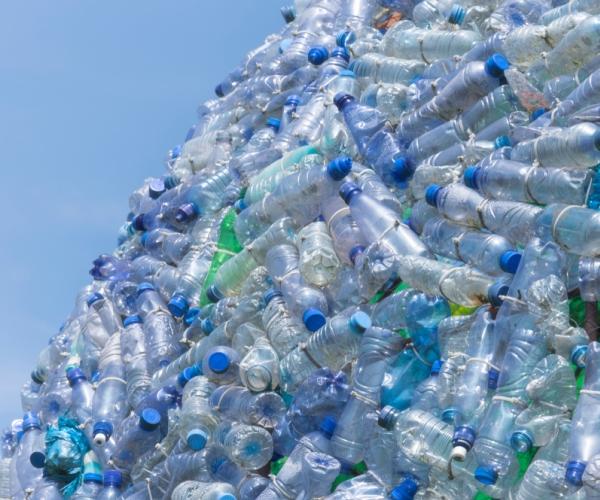
Why is the UK's water bottle industry a £1.3bn industry as of 2023 with growth projections, not a decline? Is it the smell? Is it the taste? Is it because of tap water safety concerns? Or has it become a habit? The Greater London Authority reports that an astonishing 7.7 billion plastic water bottles are purchased annually across England. Replacing home water bottle purchases with a home drinking water filtration system can yield immediate positive environmental benefits.
The life cycle of a single-use water bottle involves several stages, from production to disposal. Plastic bottle manufacturing is energy-intensive, consuming significant amounts of energy from non-renewable fossil fuels. The process begins with extracting the primary raw material used to make the plastic water bottles. The two primary raw materials used to make polyethylene terephthalate (PET) plastic are:
1. Terephthalic Acid: Petrochemicals like petroleum or natural gas produce terephthalic Acid, which gives PET plastic its rigid structure.
2. Ethylene Glycol: Petrochemical sources also yield ethylene glycol, a colorless, odorless liquid used as a reactant in the production of PET. Ethylene glycol enhances PET's transparency and ability to withstand temperature fluctuations.
Next, manufacturers transport the raw materials to a facility, where they heat, melt, and mold them into the shape of water bottles. This process also consumes energy and generates emissions. Not only does the manufacturing and production of single-use water bottles have a significant negative environmental impact, but packaging and distribution do as well. Distribution involves long-distance transportation, resulting in greenhouse gas emissions and resource consumption. In the last and final stage, many single-use bottles end up in water systems, landfills, or incinerated, further exacerbating the environmental impact.
Next, manufacturers transport the raw materials to a facility, where they heat, melt, and mold them into the shape of water bottles. This process also consumes energy and generates emissions. Not only does the manufacturing and production of single-use water bottles have a significant negative environmental impact, but packaging and distribution do as well. Distribution involves long-distance transportation, resulting in greenhouse gas emissions and resource consumption. In the last and final stage, many single-use bottles end up in water systems, landfills, or incinerated, further exacerbating the environmental impact.
A home water filtration system installed at the kitchen tap can provide drinking water that tastes and smells like bottled water while being safer to drink over the long term. By delving deeper into the manufacturing of plastic water bottles, you can see how installing a drinking water filtration system will positively impact the environment. When you use a home water filtration system instead of buying single-use water bottles, the benefits are evident in the reduction of plastic pollution, carbon emissions, energy use, and the use of fossil fuels. In the words of Gandhi, "Be the change that you wish to see in the world."
Contact our independent water treatment experts to learn more about drinking water filters and filter taps.